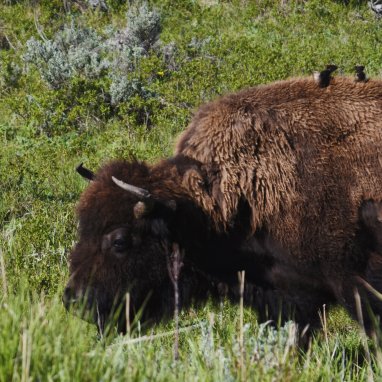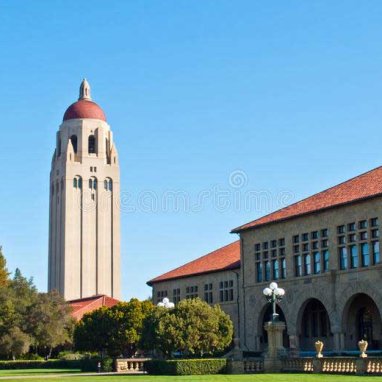Curricular Global Learning
Study wolf reintroduction and grizzly bear conservation, research and track pollinators, or work in a sophisticated research lab.

The Introductory Biology Yellowstone program gives students first-hand experience with the greater Yellowstone ecosystem as it relates to the spring term Introductory Biology curriculum. Students chosen for the program spend spring term together in a special section of Bio 230 that approaches the curriculum through the lens of the biology happening at Yellowstone National Park, and while at the park, learn from instructors from Yellowstone Forever Institute. Topics covered include wolf reintroduction, grizzly bear conservation, and the Bison/Brucellosis dynamic. Students will have the opportunity to see thermal features such as Mammoth Hot Springs and contribute to a citizen science project to monitor the effects of climate change in the park.
Summer break: Early June
More than three-quarters of the world’s crops depend on pollinators. These animals provide essential ecosystem services and play a crucial role in the production of many fruits and vegetables. But a changing climate, pesticide use, and habitat loss or degradation threaten pollinator communities. To properly protect pollinators in Central America, it is critical to understand which species exist where, what their impact is on pollination services, and what the biggest threats to these pollinators are, such as changes in climate. A group of Exeter students will contribute to this research during a weeklong trip to and around Monteverde in the mountainous Puntarenas province.
Summer break: Early June.

This Exeter summer internship is designed to give a qualified rising senior a four- to six-week paid internship that will expand their scholarship by transcending a traditional learning venue with a real-world work experience. Working in Dr. Seung Kim’s laboratory at Stanford University, the student selected will join an active research lab and will continue the work started in the Biology 586 course at Exeter. They will also have the opportunity to work alongside other high school, graduate, and post-doctoral students to learn the skills needed to take advantage of Drosophila melanogaster as a powerful modern model organism for developmental biology and physiology research.
Summer break: Early August to early September.